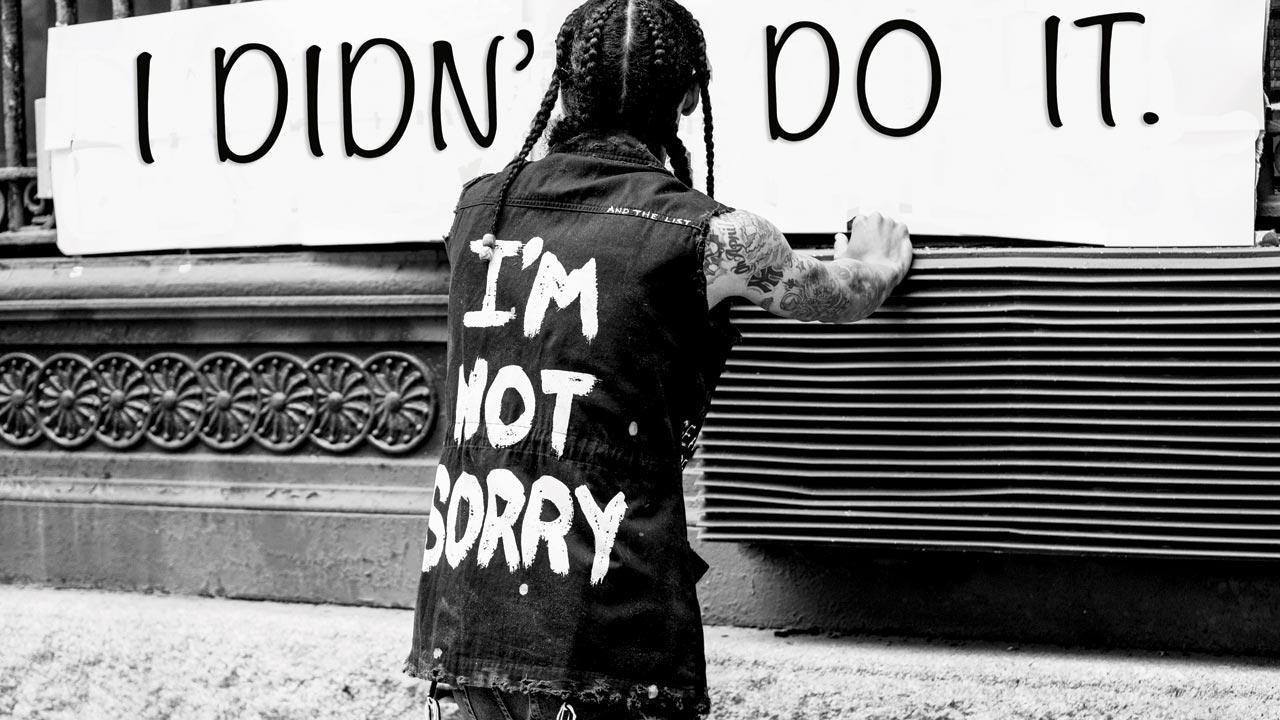Why do people who do the most barbaric, monstrous things never say sorry? Could it be because sorry implies you did something wrong—and could end up in jail?

In India, though, tread softly. Nothing in Indian law protects you from being treated as guilty if you apologise.
 The King of Belgium deeply regretted. He was full of aphsos. Speaking to a joint session of parliament in Kinshasa, the capital of the Democratic Republic of Congo, he could not express his regrets deeply enough to the country the Belgians had plundered for decades.
The King of Belgium deeply regretted. He was full of aphsos. Speaking to a joint session of parliament in Kinshasa, the capital of the Democratic Republic of Congo, he could not express his regrets deeply enough to the country the Belgians had plundered for decades.
ADVERTISEMENT
During Congo’s years under merciless Belgian rule, from 1885 to 1960, they say about 10 million Congolese were killed or died of hunger or disease. Villages that missed meeting their rubber collection quotas were required to send severed hands of their men, women and children instead.
Now, 60 years later, Belgium’s reigning King Philippe deeply regretted the wanton cruelty, pillaging, racism and plundering that was perpetrated by Leopold II, the brother of his great-great-grandfather, who ran the so-called Congo Free State like his personal fiefdom.
“The colonial regime itself was based on exploitation and domination,” said the king. “This regime was one of unequal relations, unjustifiable in itself, marked by paternalism, discrimination and racism. It led to violent acts and humiliations... I wish to reaffirm my deepest regrets for those wounds of the past.”
That word, again. Regret. Why didn’t he say the word every Congolese wanted to hear? Just sorry.
“The simple regret that you have expressed is not sufficient,” said Antoine Roger Lokongo, a professor at the University of Joseph Kasa-Vubu. Most Congolese would have agreed with him.
Belgium is neither the world’s best-known nor its most rapacious coloniser. That honour must go to England. In the years since India became independent from the British yoke, British monarchs and ministers have commiserated with India about their own barbaric acts as colonisers. Most of them found it convenient to regret. The coloniser has never apologised for colonising.
Winston Churchill thought the Jallianwala Bagh massacre was “monstrous”. In Amritsar, Britain’s high commissioner to India, Dominic Asquith, wrote in a guest book: “We deeply regret what happened and the suffering caused.”
Shashi Tharoor, MP, speaking at a debate at the Oxford Union in 2015, said, “The ability to acknowledge a wrong has been done, to simply say sorry, will go a far far far longer way.”
But Prime Minister David Cameron didn’t think so. “I don’t think the right thing is to reach back into history and to seek out things that we should apologise for.”
My question is simple: Why is sorry such a difficult word to say?
I was surprised by the answer: you could end up in jail if you said sorry to the wrong person at the wrong time. If you have something you are sorry about, clearly you must have done something you should not have. You’re guilty by admission.
Anything you say can and will be used against you.
Think it through. The apologetic imperialist fears being asked to pay reparations for the misery they caused—if they say they’re sorry they caused it.
Perhaps you’re a cardiac surgeon whose patient dies on the operating table, not your fault. You are distressed, because your job is to save lives. You tell the newly bereaved wife, “I am so, so sorry, madam. We did the best we could.”
She files a negligence and malpractice case against you using your apology as evidence.
Your car bangs someone else’s Maserati at an intersection. Your headlights are broken, but one of their passengers is hurt. Not being a hit-and-run artiste you hurry over and say, “I am so very sorry. Is she badly hurt?”
Uh-oh. You said sorry. Next thing you know, the Maserati has accused you of driving under the influence. To make matters worse, the insurance company turns down your claim, saying you admitted guilt by apologising.
With the law breathing down its neck, sorry went into hiding. You would only hear it when it actually meant you were not sorry at all.
I’m sorry, we’re going to have to let you go.
I’m so sorry for your loss.
Sorry, I really don’t have time for this shit.
But sorry is the kindest word I know. It can be empathy with wings, flying from one heart to touch another. I believe people who don’t say sorry didn’t get hugged often enough by their mothers.
Africans would say sorry to me if I mentioned some trivial inconvenience, such as mosquitoes at night. Oh, so sorry, bwana, as though they’d released the mosquitoes. Thais say sorry if they think something is making you feel bad.
Apology legislation—which makes it okay to say sorry without fearing repercussions—was first enacted in the USA, the world’s most litigious country. It now exists in various forms in much of the world, though doctors and drivers are still warned to watch their apologies, lest it land them behind bars.
In India, though, tread softly. Nothing in Indian law protects you from being treated as guilty if you apologise. Your sorriness can be treated as evidence of guilt (though, fortunately, not the only evidence of guilt).
That’s life. So sorry.
Here, viewed from there. C Y Gopinath, in Bangkok, throws unique light and shadows on Mumbai, the city that raised him. You can reach him at cygopi@gmail.com
Send your feedback to mailbag@mid-day.com
The views expressed in this column are the individual’s and don’t represent those of the paper
 Subscribe today by clicking the link and stay updated with the latest news!" Click here!
Subscribe today by clicking the link and stay updated with the latest news!" Click here!







